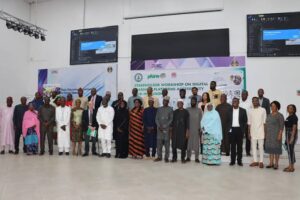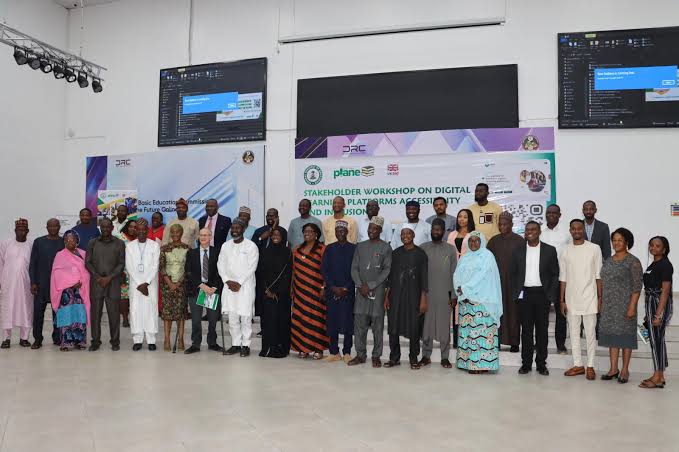The Nigerian government, with the support of the United Kingdom’s Partnership for Learning for All in Nigeria (PLANE) program, has launched a centralized e-learning platform aimed at improving education across the country. The platform, designed for learners and teachers from basic schools to tertiary institutions, will offer access to high-quality educational resources aligned with the national curriculum.

Called “eLearn,” this platform provides a wide range of learning materials, including interactive exercises, videos, and texts, to help students enhance their learning experience. In addition to benefiting learners, the platform will also support teachers by offering professional training resources and access to educational content. This development is expected to make education more accessible, particularly in areas where learning resources are limited.
The eLearn platform was officially unveiled by the Federal Ministry of Education during a two-day stakeholders’ workshop in Abuja. The theme of the event was “Digital Learning Platforms, Accessibility, and Inclusion,” highlighting the government’s focus on using technology to improve education.
Professor Tahir Mamman, Nigeria’s Minister of Education, emphasized the importance of technology in modernizing education. Although he could not attend the event in person, his message was delivered by Gbenga Oderemi, the Deputy Director of ICT at the ministry. According to Professor Mamman, advancements in technology have significantly changed how education is delivered, as well as impacted other sectors of the economy. He noted that the government’s commitment to integrating technology into education is evident in its various policies and strategies.
The minister also shared that the government, in collaboration with PLANE, has created a reference repository of e-learning resources, which will serve as a warehouse for all available digital learning materials in Nigeria. He encouraged students, teachers, and parents to take advantage of the platform to improve the quality of education in the country.
The British High Commission’s Senior Education Adviser, Ian Attfield, also spoke at the event, stressing the importance of ensuring that the platform is inclusive and accessible, particularly for students in rural areas who may lack access to modern technology. He also raised concerns about the digital divide, which often leaves women and girls with less access to digital tools compared to men. Attfield emphasized the need to make the platform accessible to people with various learning disabilities and sensory impairments.
During the event, Abubakar Isah, Director of ICT at the Federal Ministry of Education, shared key statistics about the platform’s impact so far. He revealed that 1.5 million learners are already connected to the government’s e-learning platforms, which offer 40,000 learning resources. The government aims to expand the platform to reach an additional one million users within the next year.
Isah also highlighted that during the COVID-19 pandemic, the government, with support from UNICEF and the Global Partnership for Education (GPE), trained 35,000 teachers and distributed 13,000 devices to help support online learning. Three e-learning platforms were actively used during this period to ensure that students could continue their education despite the disruptions caused by the pandemic.
Looking ahead, the government plans to consolidate all e-learning platforms in Nigeria to improve efficiency and user engagement. Additionally, guidelines for using e-learning resources will be reviewed and approved at the upcoming National Council on Education meeting scheduled for next month.
The launch of the eLearn platform is seen as a significant step in making education more accessible and inclusive for all Nigerians. However, efforts must be made to ensure that those in underserved areas and vulnerable populations, including women and girls, can fully benefit from the platform’s resources.




